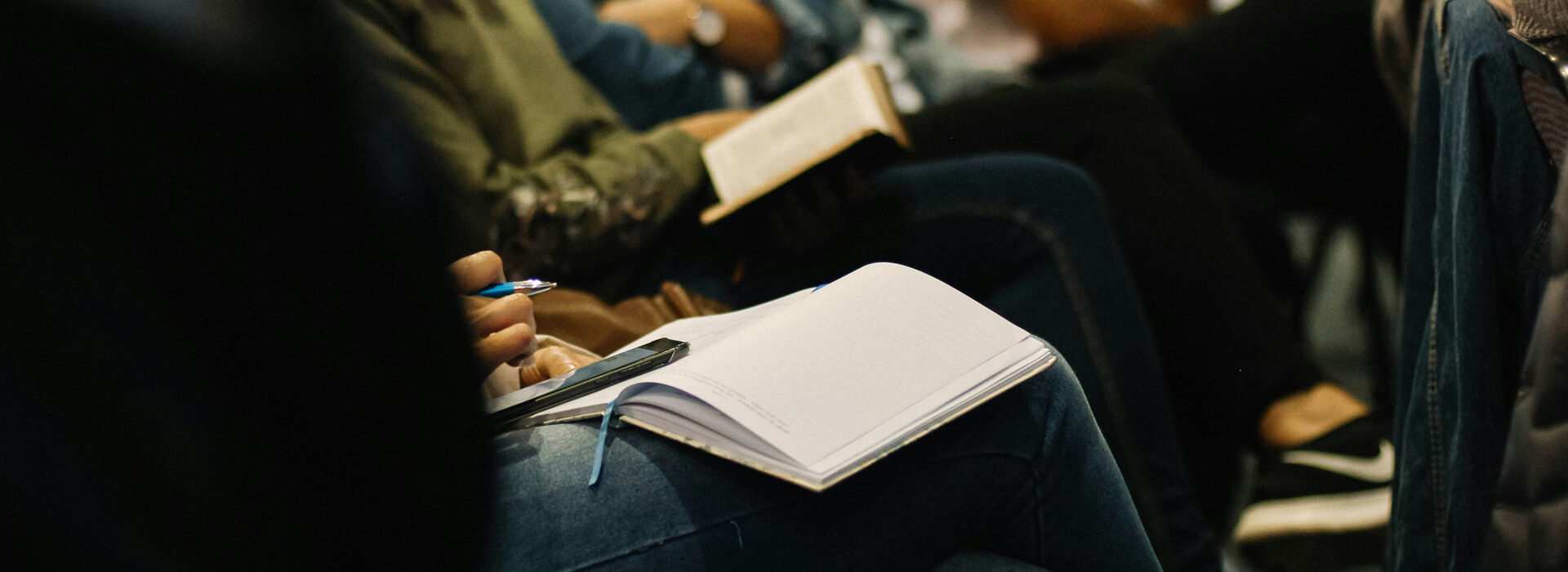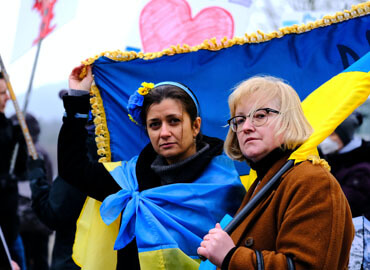Trends of September 2023-January 2024, which became stronger or new in the issue of Russia’s presence in the education system of Belarus.
The main priority of Rossotrudnichestvo’s work in Belarus is the sphere of education
In the previous review on Russia’s presence in the education system of Belarus, we noted the growing activity of work in this area. During the analyzed period, a number of events took place, which indicate a significant intensification of work and focus on interaction and rapprochement with the Belarusian education system.
On September 26, during the strategic session on the development of humanitarian cooperation with Belarus, Russian Prime Minister Mikhail Mishustin said, “It is important to increase the attractiveness of studying in Russian colleges and universities for Belarusian applicants and vice versa. We have already made a number of significant decisions. When young people from fraternal Belarus enter Russian universities, the results of Olympiads and centralized testing are taken into account. This is an analogue of our USE. We have increased the government quota up to 1.3 thousand places for the current academic year. Belarusian-Russian University in Mahiliou operates successfully. There are also plans to expand the network of branches of our higher education institutions in the republic and to open an educational cluster of the Union State.” In fact, Mikhail Mishustin announced plans for further rapprochement of the two education systems. We should also note that he mentioned the innovations on facilitated admission of our students, especially Olympiad participants. This may lead to a gradual outflow of the most talented applicants to Russian universities.
In turn, when summarizing the results of Rossotrudnichestvo’s work in Belarus in 2023, its head Yury Makushin said, “Education is a priority direction for the Russian House.”
Increased work of Rossotrudnichestvo with school teachers and lecturers of higher education institutions
On October 31, 2023, the first educational event of the Center for Open Education in the Russian language of the Ministry of Education of Russia took place at the Russian House in Minsk. According to the organizers of the center, the main audience that will be the focus of the center’s work: school teachers, methodologists and students themselves. Since the opening of the center, the staff of the center has conducted 15 programs of additional education for more than 550 students from among school teachers, university lecturers, specialists in youth work, as well as teachers of extended day groups. In addition, teachers of the center conducted 16 educational lectures, training seminars, scientific competitions, team-business games for a wide target audience (guests of the Russian House, etc.). We also note that during the implementation of its programs, the center’s staff visits universities in Belarus (including regional ones) and also conducts its classes and lectures on the basis of education development institutes (for school teachers). The organizers call “Popularization of the Russian language and Russian education abroad” the main goal of the center’s work.
Trips of representatives of the Belarusian education system to the occupied territories of Ukraine. More active role in covering the topic of the war in Ukraine
We have already mentioned in the previous review that representatives of the Belarusian education system and youth organizations visited the occupied territories of Ukraine (the head of the pro-government Belarusian Republican Youth Union, Aliaksandr Lukyanau, visited Mariupol).
In November 2023, the signing of a cooperation agreement between the Youth Parliament at the National Assembly of the Republic of Belarus (represented by Mikita Rachylouski, an odious young propagandist and the head of this parliament) and the Youth Parliament of the unrecognized Donetsk People’s Republic became a loud news. At the same time, several other events took place during the visit to Donetsk:
- On November 4, on the Day of National Unity of Russia, representatives of the Youth Parliament at the National Assembly of Belarus and the Chamber of Young Legislators at the Federation Council of the Federal Assembly of Russia met with Artyom Zhoga, the Chairman of the People’s Council of the Donetsk People’s Republic (the person who asked Vladimir Putin for another presidential term). During the meeting, Mikita Rachylouski awarded the Certificate of Honor of the Youth Parliament at the National Assembly of Belarus to Artyom Zhoga.
- On November 4, representatives of the Youth Parliament at the National Assembly of Belarus took part in a round table at Donetsk State University within the framework of the Agreement on cooperation and joint activities between the Youth Parliament at the National Assembly of Belarus and the Chamber of Young Legislators. We would like to pay special attention to the topic of the round table – “Features of civic and patriotic education of student youth: new challenges in conditions of the special military operation.”
- During the trip, representatives of the Belarusian delegation participated in laying flowers at the place of death of the first head of the DNR, Aleksandr Zakharchenko. In addition, the delegation participated in the laying of flowers at the ‘Alley of Heroes’. There are monuments to such separatists as: Batya, Givi, Motorola, Mamai, Korsa, Vokha and artist Iosif Kobzon.
The opening of a large exhibition “Ordinary Nazism” in December 2023 was also significant. The exhibition will travel around different cities of Belarus. As the organizers state, “The exhibits presented at the exhibition include weapons samples from NATO countries, as well as items confirming the Kyiv regime’s deliberate policy of destroying Orthodox churches.” It is obvious that the exhibition has a pronounced propaganda and anti-Ukrainian character. The opening ceremony of the exhibition was attended by the chairman of the Russian Historical Society, Sergey Naryshkin (the head of the Russian Foreign Intelligence Service).
Strengthening of the trend towards the rapprochement of the legislation of Belarus and Russia in the sphere of youth policy, sports and tourism, and education.
Active work on the unification and rapprochement of the legislations of the two countries, which takes place within the framework of the work on the establishment of the Union State of Belarus and Russia, has begun to affect the education system more actively. We should note two important events in the past 3-4 months:
- A meeting of the Parliamentary Assembly Commission on Youth Policy, Sports and Tourism was held in Smolensk. The meeting was attended by representatives of the Standing Committee of the Union State, the Ministry of Science and Higher Education of Russia, the Ministries of Education of Belarus and Russia, the Federal Agency for Youth Affairs, the Belarusian Republican Youth Union, the Ministry of Sports and Tourism of Belarus, the Ministry of Sports of Russia, the Ministry of Economic Development of Russia. As a result of the meeting, it was decided:
- to propose to unify the legislation in the field of youth policy of the two countries;
- to hold a meeting of the standing seminar “Rapprochement of the legislation of the Republic of Belarus and the Russian Federation on the issues of youth policy, sports and tourism” at the Parliamentary Assembly on the establishment of the Union State.
- On November 1-2, a meeting of the standing seminar on the establishment of the Union State under the Parliamentary Assembly of the Union of Belarus and Russia was held in Yaroslavl. During the meeting, the participants discussed “priority directions of development of the secondary education system, urgent problems of improvement and rapprochement of higher education systems and standards in Belarus and Russia, as well as issues of training of highly qualified personnel within the framework of the Union State.” The meeting was titled “Practice of formation and tasks of synchronization of structural and methodological systems and standards of secondary and higher education in Belarus and Russia”, which indicates the process of deeper (structural) rapprochement of the two education systems.
We would like to draw attention to the fact that at the meeting, they also discussed issues related to the rapprochement of specialized secondary education systems. In fact, we see active work on the gradual unification of the legislation of the two countries, which will further deepen the degree of integration of the two education systems.
Conclusions
Based on the analysis of the situation over the last 3-4 months, we can distinguish several facts that characterize Russia’s penetration into the education system of Belarus:
- Intensification of the process of unification and rapprochement of the legislation of the two countries in the field of youth policy and education. Work in this direction is becoming systematic.
- Education has become the most important and priority area in the work of all pro-Russian organizations. This work is being scaled up and intensified in various directions (work with applicants, school teachers, university lecturers, students, young people in general).
- The topic of Russia’s war against Ukraine (‘special military operation’) is becoming more and more visible in the work of pro-Russian organizations in Belarus. Previously, we didn’t observe such trends, and this topic was practically absent in the work of Rossotrudnichestvo (except for indirect references of a humanitarian nature).
Recommendations
- Search for funding and support for projects and initiatives that promote the Belarusian language, culture and, very important, history.
- Supporting educational opportunities for teachers. We believe it is important that Belarusian organizations create projects and products for them.
- Assistance to Belarusian teachers, lecturers located outside Belarus. There are large groups of active school teachers who want to create content for teachers, students, but are not united in organizations. Institutional assistance for such groups.










